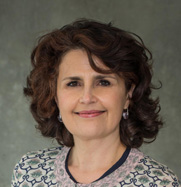KEY NOTES
Eric Gans
 … is Distinguished Professor of French and Francophone Studies at the University of California, Los Angeles. Author of 16 books and over 80 articles, Gans received his PhD from Johns Hopkins in 1966, where he studied with René Girard, who was an important early influence. While Gans’s work shares the same broad anthropological aims as Girard, his theory is distinct and original. According to Gans, those categories deemed fundamental to humanistic inquiry must be traceable to their appearance in the “originary scene” of human culture. Because human culture is transmitted nongenetically, purely biological explanations of culture can only ever be partial. Rather than seek to imitate the methods of the natural sciences, the most powerful research strategy for the humanities is to minimize the number of nonbiological explanatory categories by tracing them to their genesis in the first cultural scene, a minimal account of which Gans proposes in his “originary hypothesis.” Gans calls this procedure “Generative Anthropology,” and he has written eight books on the topic, including The Origin of Language (1981), The End of Culture: Toward a Generative Anthropology (1985), Science and Faith: The Anthropology of Revelation (1990), Originary Thinking: Elements of Generative Anthropology (1993), Signs of Paradox: Irony, Resentment, and Other Mimetic Structures (1997), The Scenic Imagination: Originary Thinking from Hobbes to the Present Day (2008), A New Way of Thinking: Generative Anthropology in Religion, Philosophy, Art (2011), and The Girardian Origins of Generative Anthropology (2012). Gans’s keynote will address ….
… is Distinguished Professor of French and Francophone Studies at the University of California, Los Angeles. Author of 16 books and over 80 articles, Gans received his PhD from Johns Hopkins in 1966, where he studied with René Girard, who was an important early influence. While Gans’s work shares the same broad anthropological aims as Girard, his theory is distinct and original. According to Gans, those categories deemed fundamental to humanistic inquiry must be traceable to their appearance in the “originary scene” of human culture. Because human culture is transmitted nongenetically, purely biological explanations of culture can only ever be partial. Rather than seek to imitate the methods of the natural sciences, the most powerful research strategy for the humanities is to minimize the number of nonbiological explanatory categories by tracing them to their genesis in the first cultural scene, a minimal account of which Gans proposes in his “originary hypothesis.” Gans calls this procedure “Generative Anthropology,” and he has written eight books on the topic, including The Origin of Language (1981), The End of Culture: Toward a Generative Anthropology (1985), Science and Faith: The Anthropology of Revelation (1990), Originary Thinking: Elements of Generative Anthropology (1993), Signs of Paradox: Irony, Resentment, and Other Mimetic Structures (1997), The Scenic Imagination: Originary Thinking from Hobbes to the Present Day (2008), A New Way of Thinking: Generative Anthropology in Religion, Philosophy, Art (2011), and The Girardian Origins of Generative Anthropology (2012). Gans’s keynote will address ….
Ines Angeli Murzaku
 Ines Angeli Murzaku (http://academic.shu.edu/orientalia/) is Professor of Religion and Director of Catholic Studies Program at Seton Hall University in New Jersey. She earned a doctorate from the Pontifical Oriental Institute in Rome and has held visiting positions at the Universities of Bologna and Calabria in Italy and University of Münster in Germany. She has won grants including Alexander von Humboldt Research Fellowship for Experienced Researchers; Social Sciences and Humanities Research Council of Canada Grant (SSHRC); and Fulbright Senior Research Scholar. Her research has been published in multiple articles and seven books. Dr. Murzaku’s book publications include: Life of St Neilos of Rossano (1004) (Dumbarton Oaks, Harvard University Press 2018); Italo-Greek Monasticism from St Neilos to Bessarion (Ashagte-Routledge 2018); Monasticism in Eastern Europe and the Former Soviet Republics (Routledge 2016); Monastic Tradition in Eastern Christianity and the Outside World a Call for Dialogue (Peeters University of Leuven 2013); Returning Home to Rome? The Monks of Grottaferrata in Albania (Analekta Kryptopherres 2009); Quo Vadis Eastern Europe? Religion, State and Society after Communism (Longo University of Bologna 2009); and Catholicism, Culture and Conversion: The History of the Jesuits in Albania (1841-1946) (Orientalia Christiana Analecta, Pontifical Oriental Institute 2006). Dr. Murzaku was the vice-president of the Association for the Study of Nationalities (ASN) and a United Nations accredited representative for the organization Christians Associated for Relationships with Eastern Europe and the Founding Chair of the Department of Catholic Studies at Seton Hall University. She is a regular commentator to media outlets on religious matters. She has worked for or collaborated with the Associated Press, CNN, Voice of America, Relevant Radio, The Catholic Thing, Crux – Taking the Catholic Pulse, Salt and Light Catholic Media Foundation (Canada), The Record, The Stream, Radio Tirana (Albania), Vatican Radio (Vatican City), and EWTN (Rome).
Ines Angeli Murzaku (http://academic.shu.edu/orientalia/) is Professor of Religion and Director of Catholic Studies Program at Seton Hall University in New Jersey. She earned a doctorate from the Pontifical Oriental Institute in Rome and has held visiting positions at the Universities of Bologna and Calabria in Italy and University of Münster in Germany. She has won grants including Alexander von Humboldt Research Fellowship for Experienced Researchers; Social Sciences and Humanities Research Council of Canada Grant (SSHRC); and Fulbright Senior Research Scholar. Her research has been published in multiple articles and seven books. Dr. Murzaku’s book publications include: Life of St Neilos of Rossano (1004) (Dumbarton Oaks, Harvard University Press 2018); Italo-Greek Monasticism from St Neilos to Bessarion (Ashagte-Routledge 2018); Monasticism in Eastern Europe and the Former Soviet Republics (Routledge 2016); Monastic Tradition in Eastern Christianity and the Outside World a Call for Dialogue (Peeters University of Leuven 2013); Returning Home to Rome? The Monks of Grottaferrata in Albania (Analekta Kryptopherres 2009); Quo Vadis Eastern Europe? Religion, State and Society after Communism (Longo University of Bologna 2009); and Catholicism, Culture and Conversion: The History of the Jesuits in Albania (1841-1946) (Orientalia Christiana Analecta, Pontifical Oriental Institute 2006). Dr. Murzaku was the vice-president of the Association for the Study of Nationalities (ASN) and a United Nations accredited representative for the organization Christians Associated for Relationships with Eastern Europe and the Founding Chair of the Department of Catholic Studies at Seton Hall University. She is a regular commentator to media outlets on religious matters. She has worked for or collaborated with the Associated Press, CNN, Voice of America, Relevant Radio, The Catholic Thing, Crux – Taking the Catholic Pulse, Salt and Light Catholic Media Foundation (Canada), The Record, The Stream, Radio Tirana (Albania), Vatican Radio (Vatican City), and EWTN (Rome).

